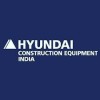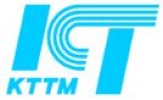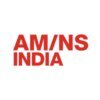i
Karbon Steelmart
Filter interviews by
Karbon Steelmart Production Engineer Interview Questions and Answers
Karbon Steelmart Production Engineer Interview Experiences
1 interview found
Interview Questionnaire
3 Questions
- Q1. What is Iron carbon diagram
- Ans.
The iron-carbon diagram is a graphical representation of the phases and microstructures that form as iron and carbon interact.
It shows the relationship between the carbon content in steel and its microstructure.
It helps in understanding the properties and behavior of different types of steel.
The diagram consists of various regions representing different phases like ferrite, cementite, pearlite, etc.
It is used to determ...
- Q2. What are the types joints
- Q3. Types of welding
- Ans.
There are several types of welding techniques used in production engineering.
Gas Metal Arc Welding (GMAW)
Gas Tungsten Arc Welding (GTAW)
Shielded Metal Arc Welding (SMAW)
Flux-Cored Arc Welding (FCAW)
Submerged Arc Welding (SAW)
Resistance Spot Welding (RSW)
Electron Beam Welding (EBW)
Laser Beam Welding (LBW)
Top trending discussions






Interview questions from similar companies

Production Engineer Interview Questions & Answers
Tecosim Engineering Servicesposted on 26 Aug 2024
(2 Questions)
- Q1. Self introduction
- Q2. Key project and learning

Production Engineer Interview Questions & Answers
Hyundai Construction Equipmentposted on 23 May 2024
(1 Question)
- Q1. What is the source name of the laser cutting machine ?
- Ans.
The source name of the laser cutting machine is typically the manufacturer's name or a specific model name.
The source name could be the manufacturer's name, such as Trumpf or Amada.
It could also be a specific model name, like Trumpf TruLaser Series or Amada LC3015.

Production Engineer Interview Questions & Answers
Kirloskar Toyota Textile Machineryposted on 3 Feb 2023
I applied via campus placement at Rural Polytechnic, Haunsbhavi and was interviewed in Aug 2022. There were 4 interview rounds.

Some general knowledge questions
(4 Questions)
- Q1. Mechanical related and lathe machine and CNC machine related questions
- Q2. Which material is used for cutting tool?
- Ans.
Cutting tools are made of various materials depending on the application.
High-speed steel (HSS) is commonly used for general-purpose cutting tools.
Carbide is used for cutting hard materials like steel and titanium.
Ceramics are used for high-speed cutting of cast iron and other hard materials.
Diamond is used for cutting non-ferrous materials like glass and ceramics.
Cobalt steel is used for cutting stainless steel and ot
- Q3. 1mm how much microns?
- Ans.
1mm is equal to 1000 microns.
1mm = 1000 microns
Micron is a unit of measurement for length equal to one millionth of a meter
Microns are commonly used in manufacturing and engineering applications
- Q4. Vernier calipers and micro meters related questions?
(2 Questions)
- Q1. Why to attend this job?
- Ans.
To attend this job is an opportunity to apply my skills and knowledge in production engineering and contribute to the success of the company.
Opportunity to utilize my technical skills and expertise in production engineering
Chance to contribute to the success and growth of the company
Ability to work on challenging projects and solve complex problems
Opportunity for professional development and career advancement
Collabora...
- Q2. Family background and why are you don't going higher education
- Ans.
I come from a supportive family background and chose not to pursue higher education for practical reasons.
My family has always been supportive of my decisions and encouraged me to pursue my interests.
I decided not to go for higher education because I wanted to gain practical experience in the field of production engineering.
I believed that hands-on experience and learning on the job would be more valuable for my career...
Interview Preparation Tips

I applied via Naukri.com and was interviewed in Aug 2022. There were 2 interview rounds.

(14 Questions)
- Q1. What Is oee calculation
- Ans.
OEE calculation is a measure of manufacturing productivity that combines availability, performance, and quality metrics.
OEE stands for Overall Equipment Effectiveness
It is calculated by multiplying availability, performance, and quality percentages
OEE helps identify areas for improvement in manufacturing processes
Example: If a machine has 90% availability, 95% performance, and 98% quality, its OEE would be 83.79%
OEE is...
- Q2. What is poka yoka and capa
- Ans.
Poka yoke is a technique used in manufacturing to prevent errors, while CAPA stands for Corrective and Preventive Action.
Poka yoke is a Japanese term meaning 'mistake-proofing' or 'error-proofing'. It involves designing a process or system in a way that prevents mistakes or errors from occurring.
Poka yoke techniques can include using sensors, alarms, or physical devices to detect and prevent errors.
For example, a poka ...
- Q3. What is difference production and productivity
- Ans.
Production is the process of creating goods or services, while productivity is the measure of efficiency in producing those goods or services.
Production refers to the creation of goods or services, while productivity measures the efficiency of that production.
Production is a process, while productivity is a measure.
Production can be increased by adding more resources, while productivity can be increased by improving pr...
- Q4. What is tpm and jh and jh 7 steps
- Ans.
TPM stands for Total Productive Maintenance and JH stands for Job Hazard Analysis. JH 7 steps are the steps involved in conducting a JH analysis.
TPM is a maintenance strategy aimed at maximizing the productivity of equipment and minimizing downtime.
JH is a safety analysis technique used to identify potential hazards in a job or task.
JH 7 steps involve breaking down a job into steps, identifying potential hazards, deter...
- Q5. What is check sheet and wsqc,swc,wes
- Ans.
Check sheet is a tool used to collect and analyze data. WSQC, SWC, and WES are not commonly used acronyms in relation to production engineering.
Check sheet is a simple data collection tool used to track defects or issues in a process
WSQC, SWC, and WES are not commonly used acronyms in production engineering
However, there are similar tools like the 5S methodology or the DMAIC process for continuous improvement
- Q6. What is 7Qc tools check sheet and parato digram
- Ans.
7QC tools check sheet is a document used to collect and analyze data, while Pareto diagram is a graphical representation of the data.
7QC tools check sheet is used to identify and solve problems in production processes
It helps in collecting and analyzing data related to the process
Pareto diagram is a bar graph that shows the relative frequency or size of problems in descending order of importance
It helps in identifying ...
- Q7. What is rejection handling and red bin analysis
- Ans.
Rejection handling is the process of identifying and addressing rejected products. Red bin analysis is a method of analyzing rejected products to determine the cause of rejection.
Rejection handling involves identifying and segregating rejected products
Red bin analysis involves analyzing rejected products to determine the root cause of rejection
The data collected during red bin analysis can be used to improve production...
- Q8. What do you man power handling
- Ans.
Manpower handling refers to managing and organizing the workforce in a production environment.
It involves recruiting, training, and scheduling employees
Ensuring safety and compliance with regulations
Motivating and supervising workers
Optimizing productivity and efficiency
Dealing with conflicts and resolving issues
Examples include managing a production line, overseeing a team of technicians, or coordinating shifts in a f
- Q9. What is kaizen and capa
- Ans.
Kaizen is a Japanese term for continuous improvement while CAPA stands for Corrective and Preventive Action.
Kaizen involves making small, incremental improvements to processes and systems over time.
CAPA is a process used to identify and address the root cause of a problem or nonconformity.
Kaizen and CAPA are both important tools for improving quality and efficiency in manufacturing and other industries.
Examples of kaiz...
- Q10. What is efficiency in your line
- Ans.
Efficiency in production engineering refers to the ratio of output to input.
Efficiency is a measure of how well resources are utilized in the production process.
It is calculated as the ratio of output to input.
Higher efficiency means more output is produced with the same amount of input.
Efficiency can be improved by optimizing processes, reducing waste, and increasing automation.
For example, reducing the time it takes ...
- Q11. What is 4m changing formats
- Ans.
4m changing formats refers to the process of changing the format of a production line from one product to another.
It involves reconfiguring the machinery and equipment to accommodate the new product
It may require changing the packaging, labeling, and other materials used in the production process
It is a common practice in manufacturing to increase efficiency and flexibility
Example: Changing a production line from makin
- Q12. What is kpi instruction
- Ans.
KPI instruction refers to the guidelines or rules that define how key performance indicators (KPIs) should be measured and reported.
KPI instruction provides a framework for measuring and reporting KPIs consistently and accurately.
It outlines the specific metrics that should be tracked and how they should be calculated.
KPI instruction also includes guidelines for setting targets and benchmarks for KPIs.
Examples of KPI i...
- Q13. What is iso - ts audit
- Ans.
ISO-TS audit is a quality management system audit for automotive industry.
ISO-TS audit is a quality management system audit for automotive industry
It is based on ISO 9001 standard and specific requirements for automotive industry
It focuses on ensuring product quality, safety, and customer satisfaction
It involves auditing the entire production process from design to delivery
Examples of ISO-TS audit include audits of car
- Q14. What is line and machining processing
- Ans.
Line and machining processing are methods used in manufacturing to produce products efficiently and accurately.
Line processing involves a series of steps in which a product is assembled or produced in a linear fashion.
Machining processing involves the use of machines to shape and cut materials into specific shapes and sizes.
Both methods are used to increase efficiency and accuracy in manufacturing processes.
Examples of...
Interview Preparation Tips

Production Engineer Interview Questions & Answers
Diffusion Engineersposted on 1 Mar 2024
I applied via Naukri.com and was interviewed before Mar 2023. There were 2 interview rounds.
General technical question
(1 Question)
- Q1. Basics question, technical question. Share Previous working experience.
Interview Preparation Tips

Production Manager Interview Questions & Answers
Gilbarco Veeder Rootposted on 3 Feb 2024
I applied via Campus Placement and was interviewed in Aug 2023. There was 1 interview round.
(1 Question)
- Q1. Experience Okay with job description

Senior Production Engineer Interview Questions & Answers
V.S.T Tillers Tractorsposted on 16 Sep 2022
I applied via Naukri.com and was interviewed before Sep 2021. There was 1 interview round.
(1 Question)
- Q1. Questions will you based on your work experience and flexibility to work and travel
Interview Preparation Tips
Should be able to work 7 days and travel very often on your own.

Production Engineer Interview Questions & Answers
Tecosim Engineering Servicesposted on 26 Aug 2024
(2 Questions)
- Q1. Self introduction
- Q2. Key project and learning

Production Engineer Interview Questions & Answers
Hyundai Construction Equipmentposted on 23 May 2024
(1 Question)
- Q1. What is the source name of the laser cutting machine ?
- Ans.
The source name of the laser cutting machine is typically the manufacturer's name or a specific model name.
The source name could be the manufacturer's name, such as Trumpf or Amada.
It could also be a specific model name, like Trumpf TruLaser Series or Amada LC3015.
Karbon Steelmart Interview FAQs
Tell us how to improve this page.
Interview Questions for Popular Designations
- Production Supervisor Interview Questions
- Production Manager Interview Questions
- Production Officer Interview Questions
- Executive Production Interview Questions
- Production Interview Questions
- Senior Production Engineer Interview Questions
- Production Chemist Interview Questions
- Production Operator Interview Questions
- Show more
Production Engineer Interview Questions from Similar Companies
Karbon Steelmart Production Engineer Reviews and Ratings
based on 4 reviews
Rating in categories
|
Production Engineer
14
salaries
| ₹1.5 L/yr - ₹5.3 L/yr |
|
QA QC Engineer
9
salaries
| ₹2.4 L/yr - ₹7.2 L/yr |
|
Quality Engineer
7
salaries
| ₹1.5 L/yr - ₹4.5 L/yr |
|
Store Incharge
7
salaries
| ₹2 L/yr - ₹2.2 L/yr |
|
Senior Production Engineer
7
salaries
| ₹5.4 L/yr - ₹8.9 L/yr |

Tata Steel

JSW Steel

Steel Authority Of India

ArcelorMittal Nippon Steel
Calculate your in-hand salary
- Home >
- Interviews >
- Karbon Steelmart Interview Questions >
- Karbon Steelmart Production Engineer Interview Questions


